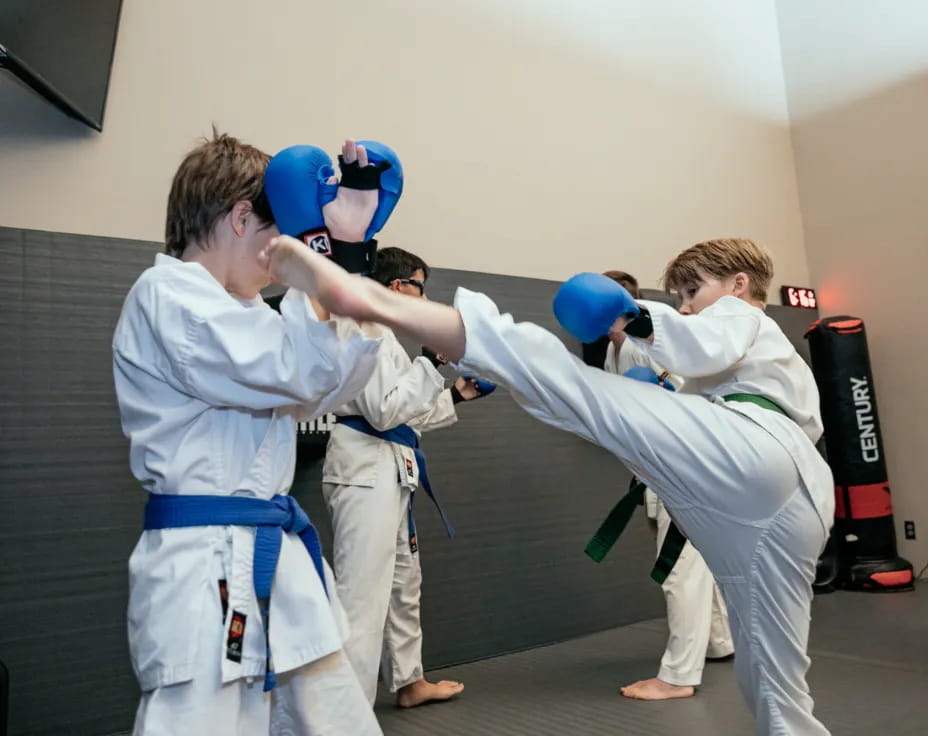
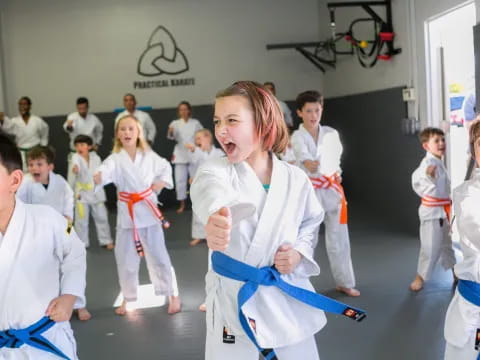
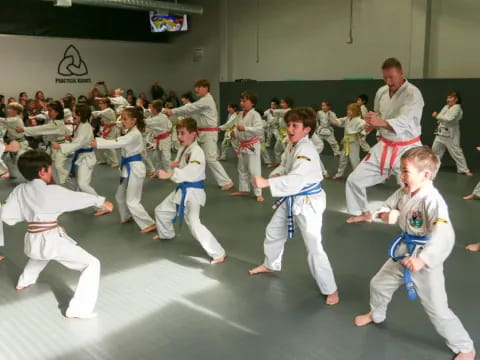
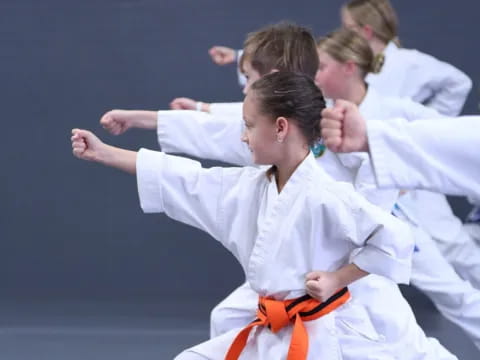
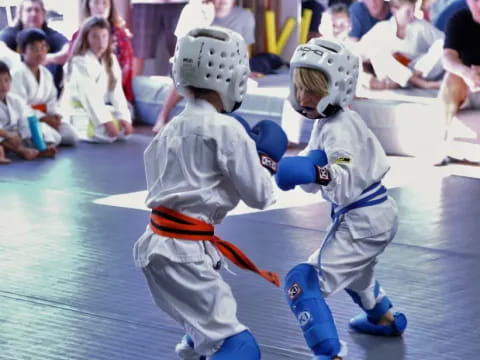
Images are property of "Practical Karate"
About Practical Karate in San Diego, CA
At Practical Karate, instruction is both enthusiastic and goal-oriented. The instructors assess student performance in order to identify their strengths and pinpoint areas that need improvement. They also check for comprehension, fluency of skills, and track progress towards achieving the instructional objectives. To maximize learning opportunities, Practical Karate also uses cooperative learning and peer mentoring. This allows students to learn from each other and build upon their existing skills. Assessment is both formative and summative, so that students can receive feedback on their progress and make any necessary changes to their approach. Practical Karate is committed to providing students with a meaningful learning experience. The instructors are passionate about helping students reach their goals, and use a variety of methods to ensure that all objectives are met. Assessment is both formative and summative, and cooperative learning and peer mentoring provide students with additional opportunities to hone their skills and gain valuable knowledge.
Show moreExperiences
What kind of kids we support
- Coed
- Preschool
- Kids
- Tweens
Amenities
- Internet Access
- Dojo
Programs at Practical Karate in San Diego, CA
UNCLAIMED
LITTLE NINJAS Class Ages: 3-5
-Teaching Kids How to Learn - Learning starts with a calm body, eyes & ears on the instructor and following group directions. -Safety - Home and community safety skills to keep kids safe. -Movement Skills - Fundamental locomotor skills, bilateral coordination, breakfalls and rolls. -Fun - Activities that young students find enjoyable while practicing safety and movement skills.
Show moreUNCLAIMED
KIDS KARATE Ages: 5-10
Discipline - The traditional martial arts culture of discipline through example, enforcement of rules and accountability. Focus - Through karate kata by memorization and execution of sequential techniques that become progressively more difficult and complex. Cooperation - Peer tutoring to develop empathy and patience. Group tasks to practice working well with others. Intermediate Locomotor Skills and Coordination - Creating better athletes by focusing on core athletic skills using the skill theme approach to physical education. Endurance, Flexibility & Strength - Exercises, drills and games to create healthier stronger bodies. Basic Self-Defense Skills - Techniques and strategies to promote situational awareness, evasion skills and the ability to fight when flight is not an option.
Show moreUNCLAIMED
PRACTICAL KARATE Ages: 10+
Exercise — Using martial arts training methods to improve cardiovascular fitness, strength and flexibility. A strong body and good cardiovascular condition are pre-requisites for effective self-defense skills. Flexibility is essential for injury prevention and longevity. Self-Defense - Using techniques and training methods from traditional martial arts to combine them with various martial arts for practical self-defense skills. Preparing the body and mind to be ready in case you need it. Culture - The culture of traditional martial arts to teach students the value of courtesy, discipline, achieving goals, hard work, perseverance and the growth mindset. Co-ordination - Techniques and drills to improve co-ordination and challenge students to improve their mind body connection.
Show moreReviews of Practical Karate in San Diego, CA
View all
No reviews yetBe the first to review a business
Location and contact information
4170 Morena Blvd, San Diego, CA, 92117